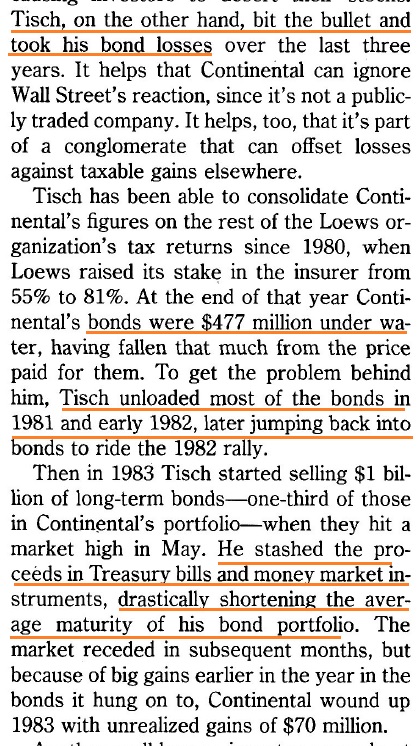
This week's must listen: @patrick_oshag & Stephen Mandel
"The most important thing is to get into a organization, public markets, private markets, doesn't matter, where they are mentored by people who teach them really good fundamentals. A lot of that is sort of by osmosis."
"The most important thing is to get into a organization, public markets, private markets, doesn't matter, where they are mentored by people who teach them really good fundamentals. A lot of that is sort of by osmosis."
"We have invested pretty much forever behind change. It can be technological change, managerial change, regulatory change, something that is changing the dynamic for a multi-year period. Investing behind those big areas has generally been what we've done on the long side."
"On the short side, it changed a lot. At the beginning there weren't a lot of hedge funds. The competition on the short side was much, much less than it is now. When there's incremental capital playing on the short side, that does change the supply-demand dynamic."
"Tthings we did in the late '90s and early 2000s shorting in the internet and telecom bubble, we absolutely couldn't do today. There was no problem borrowing Pets.com, eToys, all these crazy things. Today, the borrow cost shoots up to ridiculous levels immediately"
Shorting Onsale.com
"In the third quarter of '98, they reported earnings. Again, same thing, burning cash, no sign of this business is actually going to create any value. The stock was $12 and we were short 50bps. Six weeks later, on no news, the stock was 108."
"In the third quarter of '98, they reported earnings. Again, same thing, burning cash, no sign of this business is actually going to create any value. The stock was $12 and we were short 50bps. Six weeks later, on no news, the stock was 108."

Books-A-Million. $5->$39
"They announced that day, before the open, that they were going to have a website to sell books."
"$AMC and $GME and all this going on now, we've seen this before."
"They announced that day, before the open, that they were going to have a website to sell books."
"$AMC and $GME and all this going on now, we've seen this before."

Analysts:
"if they're very linear thinkers, it will never work. We are always dealing in shades of gray. If somebody has to know the answer...Those people can be incredibly smart...but they can't work in our world. Our world is all about probabilities and weighing outcomes."
"if they're very linear thinkers, it will never work. We are always dealing in shades of gray. If somebody has to know the answer...Those people can be incredibly smart...but they can't work in our world. Our world is all about probabilities and weighing outcomes."
"The only thing that I don't like about this job is that I look at Bloomberg 365 days a year, many multiple times per day, et cetera. You're chained to it"
$AMZN $NFLX "two companies that I would have people study for sure."
"People forget, maybe 2002, the quarter before they started Amazon Prime, company revenues grew 9%. It was a young company, and the rate of growth had been declining. It was sort of a bet the company thing."
"People forget, maybe 2002, the quarter before they started Amazon Prime, company revenues grew 9%. It was a young company, and the rate of growth had been declining. It was sort of a bet the company thing."
"Netflix went through 2 enormous pivots. One was sending DVDs through the mail...Clearly the business was migrating to online... very unclear what the results of that were going to be. Secondly, they realized, we got to spend a whole ton of money getting our own content produced"
"Both of those things, not only saved the company, but created value, but created significant moats."
"Retailing is a lot about culture and it taught me what makes a good culture and what doesn't make a good culture. It taught me also about how things can be replicated and what scale means and what can be done with scale. I would say those are probably the two biggest things."
• • •
Missing some Tweet in this thread? You can try to
force a refresh














